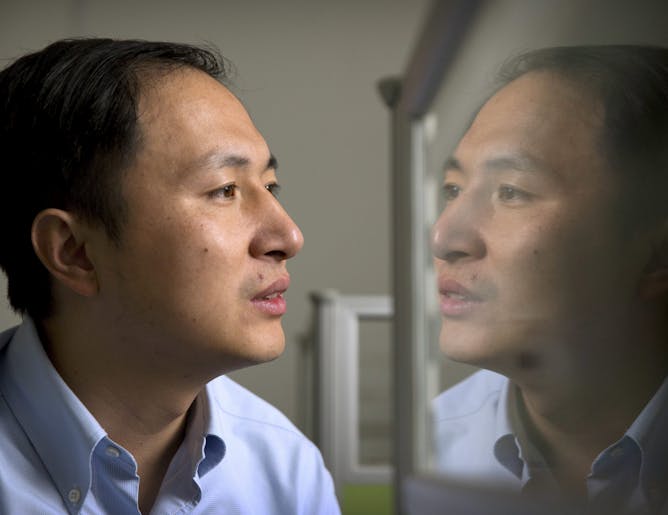|
Self-driving vehicles could soon crowd city streets, moving faster and travelling closer together than today’s cars and trucks. Today in The Conversation Canada, Cameron Roberts of Carleton University, explains that although the streamlined future of autonomous on-demand electric vehicles is tantalizing, it’s unlikely to transpire in the way it is often described.
We also take a look at Ontario’s future electricity needs and whether the province still needs nuclear power plants to meet that demand as renewables and battery storage become more readily available. And we have a story about hate, violence and extremism in Manitoba and how schools can engage young people and fight radicalization.
Finally, bioethicist Françoise Baylis explains the ethical issues behind the creation of the world’s first CRISPR babies and why handing down fines and prison sentences to the scientists involved in the experiment aren’t enough to bring closure to the issue.
Cheers,
|

Widespread use of autonomous vehicles could increase or cut greenhouse gas emissions. It all depends on public policy.
(Shutterstock)
Cameron Roberts, Carleton University
The sweeping introduction of driverless cars could see more vehicles on the road, driving longer distances. But smart planning could solve some of transit-associated environmental and social problems.
|

New research shows Ontario doesn’t really need nuclear energy, and its absence would not have an impact on emissions in the province’s energy sector.
(Ferdinand Stohr/Unsplash)
MV Ramana, University of British Columbia; Xiao Wei, University of British Columbia
Nuclear power isn't needed to meet Ontario’s electricity needs. And the absence of nuclear power won't have any impact on emissions in Ontario's energy sector.
|

Countering extremist anti-immigrant and racist attitudes and recruiting in Manitoba requires new approaches. Here, on the right, Hazel Ismail, with No One Is Illegal, calls for Winnipeg to become a sanctuary city, Feb. 3, 2017.
THE CANADIAN PRESS/John Woods
Kawser Ahmed, University of Winnipeg
Manitoba faces pressing facing demands for new ways of forming relationships with young people to counter hate.
|

He Jiankui is reflected in a glass panel as he works at a computer at a laboratory in on Oct. 10, 2018.
AP/Mark Schiefelbein
Françoise Baylis, Dalhousie University
The scientist who announced the world's first genome-edited twins received a prison sentence and a large fine for his research. But the systems that enabled him have not been held to account.
|

Il y a beaucoup d'idées fausses sur l'exercice. En voici neuf.
Shutterstock
Julie Broderick, Trinity College Dublin
Il y a beaucoup d’idées fausses sur l’exercice. En voici neuf.
|
Environment + Energy
|
-
Neville Nicholls, Monash University
The peak time for heatwaves in southern Australia has not yet arrived. Many parts of Australia can expect heavy rains and flooding. And northern Australia's cyclone season is just gearing up.
|
|
Culture + Society
|
-
Wendy Wood, University of Southern California – Dornsife College of Letters, Arts and Sciences
It's incredibly difficult to will away bad habits. But two simple strategies can make things easier.
|
|
Politics
|
-
Klaus W. Larres, University of North Carolina at Chapel Hill
President Trump's Iran policy took a dramatic turn when the U.S. killed Iran's top military commander in a drone strike. To avoid war, one foreign policy scholar says Trump has to reverse his stance.
|
|